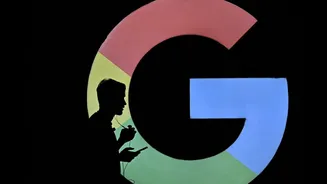Origins and History
The beginnings of astrology can be traced back to ancient civilizations. Babylonians, Egyptians, and Greeks laid the groundwork for what would become a complex
system. They meticulously observed the movements of celestial bodies, associating them with earthly events and human characteristics. The Babylonians, in particular, developed sophisticated techniques for predicting events based on planetary positions. These early astrologers believed that the cosmos, with its rhythmic patterns, reflected and influenced life on Earth. Through centuries, astrology spread and evolved, incorporating philosophical and scientific advancements to deepen its understanding and interpretations.
Core Principles Explained
At its heart, astrology operates on a few key principles. The most fundamental idea is that the positions of the sun, moon, and planets at the time of a person's birth significantly influence their personality, destiny, and life experiences. The zodiac, a band of constellations that the sun appears to pass through annually, is divided into twelve signs. Each sign represents different traits and characteristics, as well as ruling specific aspects of life. Aspects, which are angles between planets, represent specific relationships and influence. Astrologers utilize these concepts, along with the concept of houses (representing areas of life) and transits (ongoing planetary movements) to create detailed analyses and predictions.
Astrology's Diverse Applications
Astrology is applied in diverse ways, beyond just daily horoscopes. The birth chart, or natal chart, created from a person's birth details, provides a comprehensive overview of their personality, strengths, weaknesses, and potential life paths. This chart becomes a blueprint for understanding oneself. Synastry, comparing the birth charts of two individuals, gives insights into relationship compatibility and dynamics. Moreover, astrological readings help in understanding timing for important life events such as marriages, business ventures, and career changes. Further, some people make use of astrology in financial investments and even medical diagnosis. As such, the application of astrology varies greatly based on the individual's needs and interests.
Skepticism and Debate
Despite its long history and widespread use, astrology is often met with skepticism. Critics, particularly from the scientific community, question its validity and methods. They argue that astrological claims lack empirical evidence and are based on vague interpretations. The correlation between celestial events and human affairs, they say, is often attributed to coincidence rather than a causal relationship. Some argue that astrological predictions are too general and open to subjective interpretation. However, many astrologers and believers remain steadfast in their belief, citing anecdotal evidence and personal experiences as proof of astrology's accuracy and value. They regard astrology as a symbolic language, revealing patterns and insights, rather than a definitive predictor of events.
Modern Interpretations and Trends
Astrology continues to evolve and adapt to the changing times. There's a growing trend of integrating psychological insights and self-awareness into astrological readings, offering a more personalized and nuanced approach. Many astrologers use modern technologies and software to create detailed charts and analyses. The rise of social media and online platforms has broadened astrology's reach, with many people consulting astrologers or reading horoscopes online. Further, it has brought about new forms and styles of astrology and allows for a more diversified and open discourse about the practice. This continuous evolution demonstrates that astrology remains relevant and appealing to the contemporary world, providing a framework for self-discovery, guidance, and understanding the world around us.






















